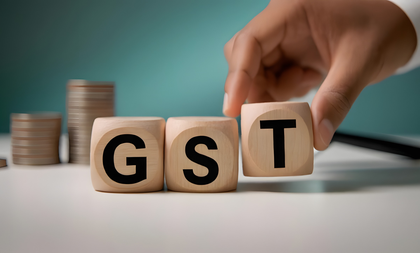GST 2.0 reforms to boost Defence, renewables, solar sectors: Report
By IANS | Updated: September 8, 2025 13:40 IST2025-09-08T13:36:13+5:302025-09-08T13:40:12+5:30
New Delhi, Sep 8 India's capital goods-related segments, such as Defence, renewable and industrial machinery, could hugely benefit ...

GST 2.0 reforms to boost Defence, renewables, solar sectors: Report
New Delhi, Sep 8 India's capital goods-related segments, such as Defence, renewable and industrial machinery, could hugely benefit from the revision of the Goods and Services Tax (GST) structure, a report has said.
The current four-tier GST system will give way to a two-rate structure of five per cent and 18 per cent, from September 22, 2025, Japan-based broking firm Nomura said in a report.
Defence procurement and indigenous manufacturing, highly sensitive to indirect tax structures, will benefit from revisions to GST rates, significantly reducing the tax burden on critical equipment, components, and subsystems, according to the broking house.
High-value imports and critical spares being exempted from IGST will significantly improve budget efficiency, it said,
The government has also slashed GST to five per cent for several high-tech Defence imports, including drones, providing long-term savings on lifecycle equipment expenses.
The internal rates of return from renewable energy projects will benefit as GST on their critical inputs and equipment moves from a 12 per cent slab to a five per cent slab, Nomura said.
"This GST cut enhances the competitiveness of solar energy versus fossil fuels, accelerates rooftop solar adoption, and supports India’s renewable energy targets for 2030,” the brokerage noted.
The reduction in GST from 28 per cent to 18 per cent provides substantial relief for MSMEs as it will reduce machinery costs across multiple sectors and encourage modernisation, it said.
The GST rate on spark or compression ignition engines, engine pumps, fuel or lubricant pumps for garages, and other related items has been reduced to 18 per cent. The move will cut input costs and equipment maintenance costs for MSMEs in the agriculture and logistics sectors.
The broking firm also reported mixed impacts on the engineering, procurement and construction sector, as affordable housing benefits from lower material costs, while government infrastructure projects may encounter higher costs due to the increased GST rate on earthwork-heavy contracts.
Disclaimer: This post has been auto-published from an agency feed without any modifications to the text and has not been reviewed by an editor
Open in app